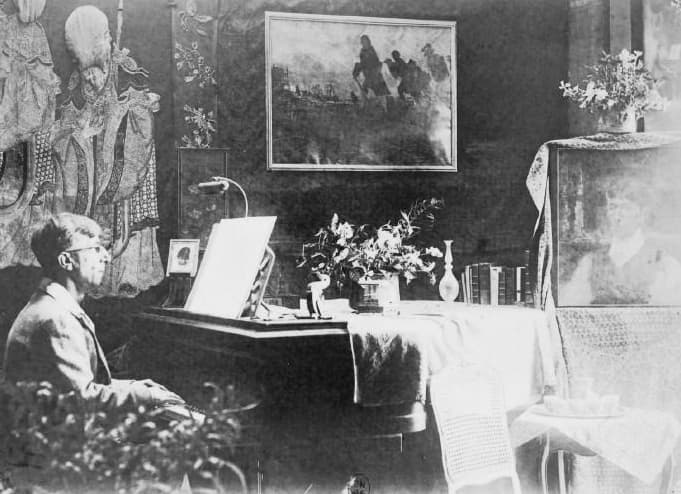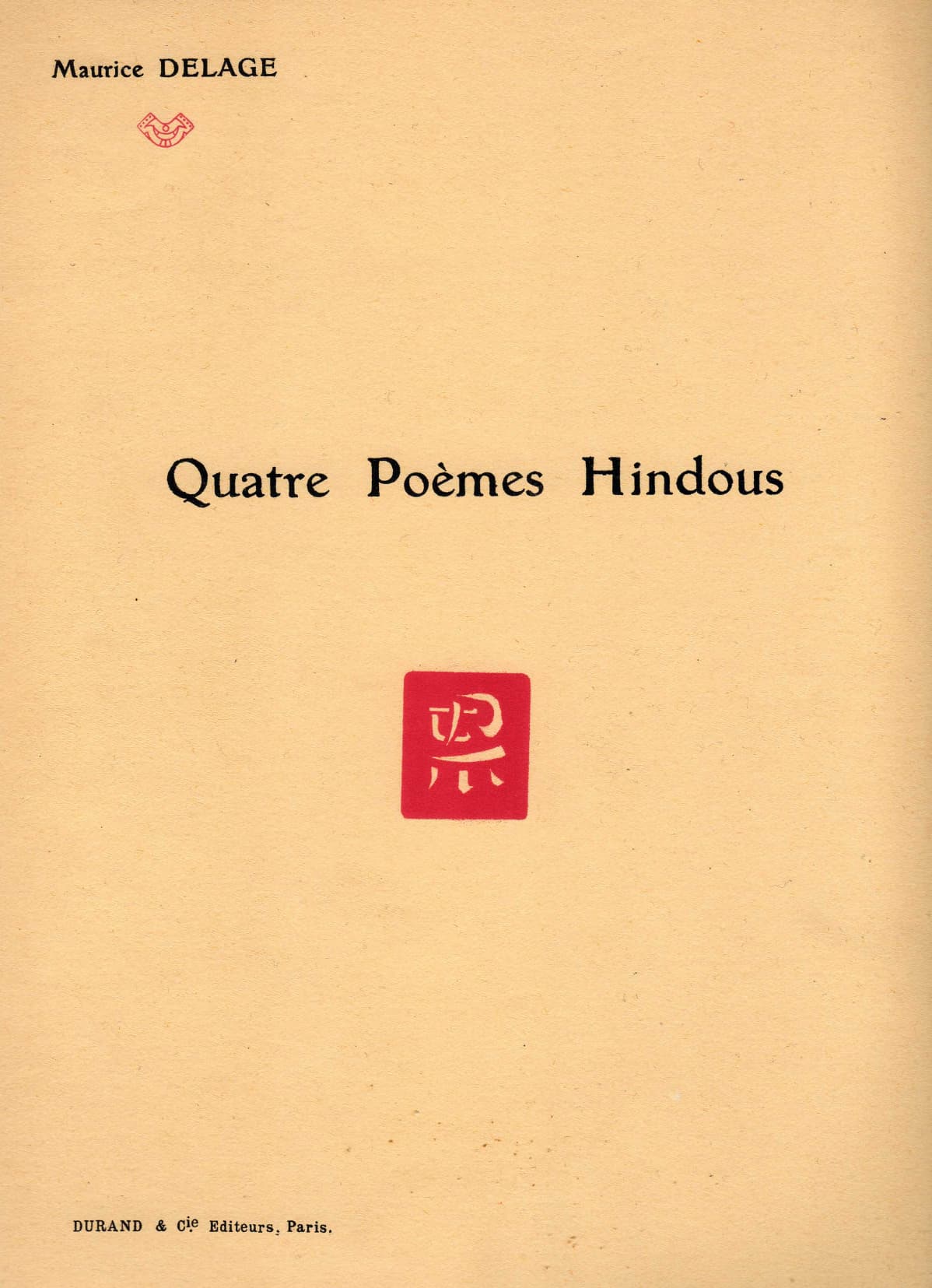Maurice Delage (1879-1961) studied with Maurice Ravel for about ten years in the 1920s, and his teacher proclaimed him “the supreme French composer of his day.” Roughly ten years earlier, however, Delage accompanied his father on a business trip to the Far East. They left in the spring of 1912 to visit factories in India and Japan, and Maurice quickly became fascinated with the musical expressions of Indian classical music.

Maurice Delage
He writes, “Indian improvisations have an audacity that escaped all organization, according to our logic.” Clearly, his approach looks beyond the constraints of Western classical music in order to appropriate some of the power inherent in Indian music. Delage was adamant that India should resist foreign contaminations in their musical traditions. This respect for authenticity inspired a preoccupation with the timbral richness of Indian music while focusing on the musical traditions of India’s contemporary elite. He bought a vast number of recordings and applied an intercultural approach to his own compositions. “I am trying to find,” he writes to Stravinsky, “those Hindu sounds that send chills up my spine.”
Maurice Delage: Quatre Poèmes Hindous, “Un sapin isolé, Lahore”
Delage started to experiment with unusual timbres produced by altered tunings and vocal techniques. In his Ragamalika, the composer calls for a prepared piano, with the score specifying that a piece of cardboard be placed under the strings of the bass B-flat to imitate the sound of the Indian drum. His most interesting composition, from the perspective of Indian influence, is the Quatre poèmes hindous.

Maurice Delage: Quatre Poèmes Hindous
His second poème sets the famous “Fir Tree” poem by Heinrich Heine, with a lonely snow-covered tree on a bare mountain in the North, dreaming of a solitary palm clinging to the edge of a scorched rock in the East. From the opening solo based on a performance by Imdad Khan to a vocal part embellished by oriental ornaments and applying the Indian technique of closed-mouth singing, Delage forges a highly personal style inspired by the music he heard in India and on his recordings. Traditional Indian music served as his inspiration, and Delage seemingly found a way for Western and Eastern materials to coexist without conflict.
For more of the best in classical music, sign up for our E-Newsletter

